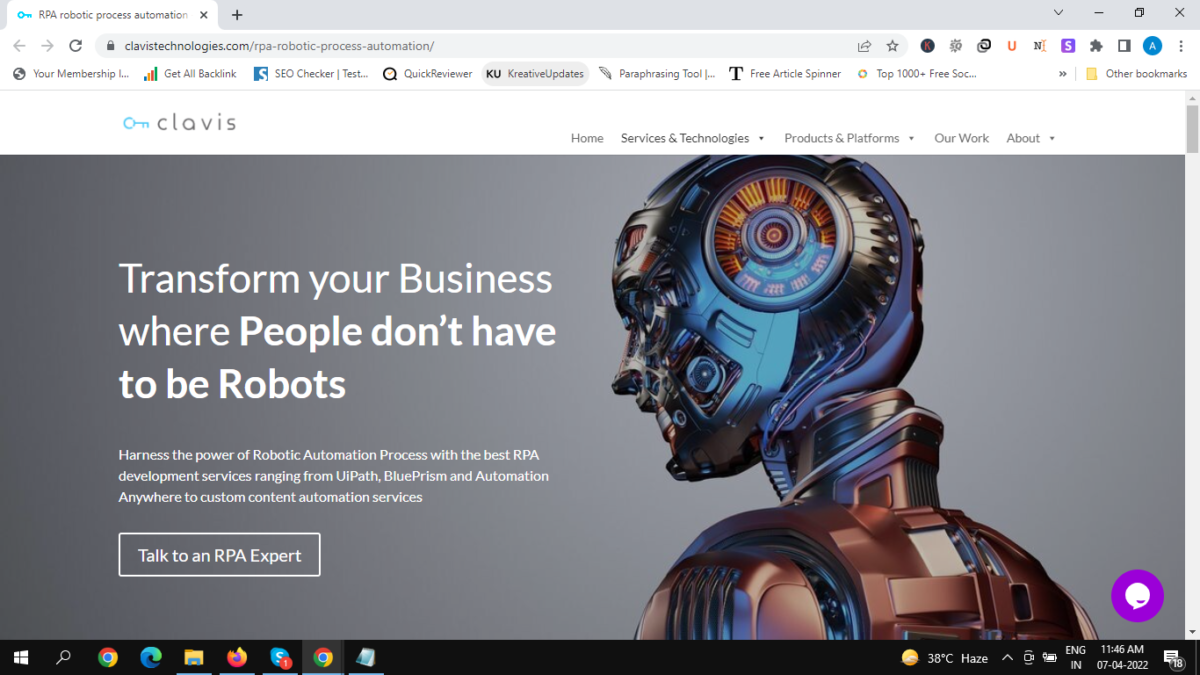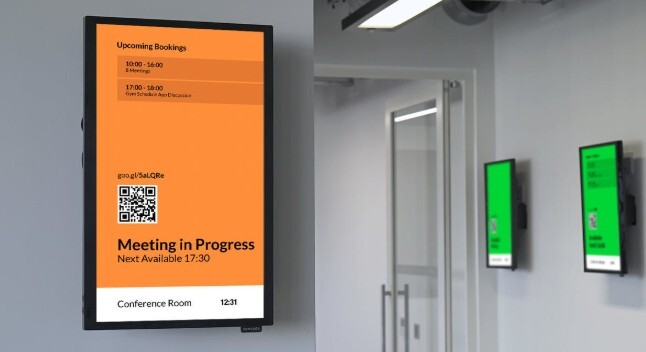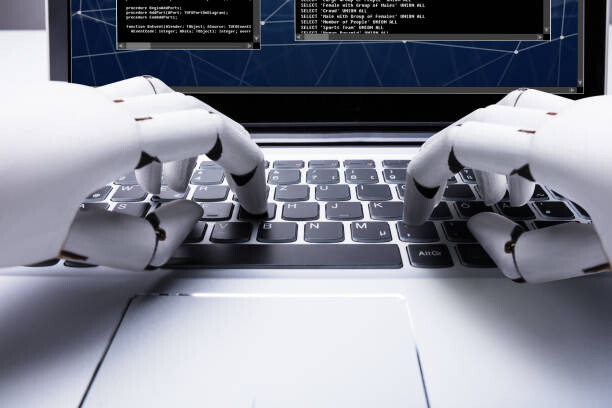What is RPA And Why Is It Important?
Robotic Process Automation (RPA) is a software that is used to automate business processes. It is also known as a form of Artificial Intelligence.
The use of RPA has been on the rise in recent years, and it’s not hard to see why. The software can help businesses improve efficiency and reduce costs by taking over manual tasks that are otherwise time-consuming and repetitive.
There are five main types of RPA solutions:
1)Replace manual processes with automated ones
2)Automate repetitive tasks
3)Improve efficiency in repetitive processes
4)Automate manual tasks that are too complex to automate manually
5)Improve data accuracy and quality
Here’s our list of Top 10 RPA Solution Providers and Consultants Worldwide
- Clavis Tech

Their team has expertise and experience with UiPath, Automation Anywhere, BluePrism or creating custom RPA setups for automating even simple administrative tasks. From content extraction, data population, aggregation to any transactional operations. The main focus of our RPA (Robotic Process Automation) services is on increasing business performance and efficiency. This can be done by using automation techniques which would result in cut costs from 25-50%. Clavis Tech are experts in robotic process automation (RPA). They offer some of the most advanced RPA tools by partnering with Automation Anywhere and UiPath.
Clavis Tech provides the highest quality in RPA services: Intelligent Automation Design, RPA Consultancy, RPA Strategy, Offsite RPA Developers tailored to your specific needs. They also offer Bot Development and Support.
- Capgemini
Capgemini optimizes key business processes using RPA. The services, solutions and products by Capgemini are used in many aspects of financial institutions. They provide account opening/closing, proposal requests or completing quotations as well as IT infrastructure testing or handling queries in billing &customer service. With AI innovations, organizations will reconsider the workforce use case. Especially when employees are reassigned to work on specialized tasks and decision-making tasks.
There are many different AI strategies you can use to improve efficiency. You can automate tasks, use automation and unattended automation, or opt for an RPA deployment services.
- Accenture
Accenture is the popular IT services brand behind a disruptive RPA provider called Automation Anywhere. They rank high among Robotic process automation service providers. RPA by Automation Anywhere is a cutting edge technology platform that’s already having a huge impact on several industries. CoE setup, Production, Automated Design, Automated support, RPA Strategy, Assessments, PoC, Implementation, End-to-end RPA solutions.
- IBM
IBM is one of the top Robotic Process Automation companies in the industry and has been designing solutions for improving efficiency. IBM’s automation technology will save you a lot of time and money, because it’s quick to implement. IBM partners are also available for advice and guidance as you implement this. IBM has been using a robotics automation company called Automation Anywhere for about two years and it’s been a great help to their business. They’ve saved time and reduced errors with the RPA services they provide.
Additional benefits –
- Quick integration processes
- Supports Decision automation
- Expands automation program
- Scaling customized for businesses
- Backed by proprietary cloud program
- Deloitte
Deloitte is pretty big & they’ve been using RPA to automate all sorts of things. Deloitte’s automation strategy includes business continuity. With the notification of assets, considering processes and risks for potential issues, you can more effectively use your resources to stay in business. Deloitte’s tools are designed to help businesses improve their efficiency and effectiveness. The RPA process will also help clients digitize their business as it relies on software that is programmed to act like a robot and which can write code, follow rules, etc.
- Symphony ventures
Symphony Ventures provides Remote Process Automation services, a wide range of software solutions, and powered digital labor revolution. RPA can help with a lot of different work tasks and keeps some part of the day-to-day operations at your company less stressful. It automates rule-based processes, usually turning them around quickly. They have a wide range of software that’s constantly being developed to keep up with enhancements in the field.
- Infosys
Building advanced robotic solutions is one thing, but creating them to integrate with industry 4.0 platforms is what’s really important. All that support and cloud computing will help your business gain everything it needs for increased efficiency or even to be amplified for increased business value. Infosys is focusing on developing RPA technologies which are agile, support own intelligence and enable efficiency. This will help enhance the business value and make work easier for yourself. Some key USPs are – Acceleration/scaling implementation, Product agnostic service model which is managed, Continuous process improvement, RPA for AI-based automation.
- Cognizant
Cognizant is helping leaders in the financial industry with their “The Forrester Wave: RPA for Service Providers” and increasing efficiency by enabling cognitive RPA. The platform provides all of this and more, from machine learning and OCR to text analytics. The service allows you to get all these aspects of a business under one unified company where you can collaborate on them with your team. TriZetto’s platform for healthcare is Cognizant’s versatile automation platform that uses their seeds to build automation capabilities for key industries such as finance and banking.
How they can help you;-
- Offers Robots as a service solution
- Predominantly banking and financial services domain
- Develop inefficient mortgage servicing processes
- Healthcare automation platform
- Tech Mahindra
Tech Mahindra has partnered with UiPath for a solution-led Ro botic Process Automation (RPA) approach to solve complex business problems for its customers and help them on their digital transformation journey. Tech Mahindra’s AI Automation Suite covers a variety of automation needs, from process automation to IT and networks. It has created an Intelligent Automation Framework, TALL – Talk, Act, Listen and Learn.
- Genpact
RPA is useful for businesses that need to rely heavily on automation. As the technology develops, the more sophisticated and scalable it becomes, which means that it can be used to implement unmanned business processes with ease. What Genpact mostly offers in terms or RPA –
- Engages in databases and workflows
- Digital Workforce Governance
- Healthcare RPA solutions
- Process flexibility
Benefits of Automating Your Business Processes with RPA Solutions
Business process automation software is a critical component of any company’s digital transformation. It can help the organization in cutting down costs and improving efficiency.
RPA solutions are becoming increasingly popular among businesses as they can automate a wide range of business processes. They are more cost-effective than other automation methods and require less time to set up and maintain.
ERP vs CRM: Key Differences, Strengths, and How Clavis’ ERP Drives Organizational Success
In the digital age, businesses strive to leverage advanced tools to streamline operations, boost productivity, and foster better customer relationships. Two pivotal software solutions that play a significant role in achieving these goals are Enterprise Resource Planning (ERP) and Customer Relationship Management (CRM) systems. While these tools may seem similar at first glance, they serve distinct purposes and offer unique benefits, and it is important to understand why you may need one or the other—or both in tandem.
1. What is ERP?
ERP stands for Enterprise Resource Planning, a comprehensive software suite that manages and integrates core business processes. These processes often include:
- Finance and accounting
- Human resources
- Supply chain management
- Inventory and order management
- Manufacturing
ERP systems centralise business data, allowing various departments to collaborate seamlessly and make informed decisions based on real-time insights.
Core Features of ERP Systems
- Centralized Data Management: Consolidates information from all business departments into one platform.
- Process Automation: Automates repetitive tasks to improve efficiency.
- Scalability: Can grow with your business, accommodating new functionalities as needed.
- Compliance Support: Helps organisations meet regulatory requirements.
- Advanced Analytics: Provides detailed insights to support strategic decision-making.
2. What is CRM?
CRM, or Customer Relationship Management, is software that focuses on managing a company's interactions with current and potential customers. The primary goal of a CRM system is to improve customer satisfaction, retention, and acquisition through personalised communication and efficient management of sales and marketing activities.
Core Features of CRM Systems
- Contact Management: Maintains detailed records of customer interactions and preferences.
- Sales Pipeline Tracking: Manages leads and monitors the sales process.
- Marketing Automation: Facilitates email campaigns, social media management, and more.
- Customer Support: Enhances post-sale services through ticketing systems and live chats.
- Data-Driven Insights: Helps identify trends to fine-tune marketing and sales strategies.
3. ERP vs. CRM: Key Differences
While ERP and CRM are essential for business success, they cater to different aspects of operations.
|
Feature |
ERP |
CRM |
|
Primary Focus |
Internal processes and operational efficiency |
Customer interactions and relationships |
|
Key Functions |
Accounting, supply chain, HR, inventory |
Sales, marketing, customer service |
|
Target Audience |
Internal stakeholders |
Sales, marketing, and customer support teams |
|
Data Integration |
Focuses on consolidating operational data |
Specialises in customer-centric data |
|
Scalability |
Enterprise-wide |
Primarily focused on customer management |
4. The Strengths of ERP Systems
ERP systems are the backbone of operational efficiency. Their key strengths include:
- Holistic Business View: ERP provides a comprehensive view of business operations by integrating data across departments.
- Cost Reduction: Automating processes reduces manual labour and errors, saving time and money.
- Improved Compliance: Centralized data simplifies regulatory reporting and ensures adherence to standards.
- Inventory Optimization: Enhances inventory management, reducing waste and ensuring timely procurement.
- Agile Decision-Making: Real-time data insights help leaders make swift, informed decisions.
5. The Strengths of CRM Systems
CRM systems shine in the realm of customer relationship management, with benefits such as:
- Enhanced Customer Insights: Tracks and analyses customer preferences to tailor interactions.
- Improved Customer Retention: Personalization and timely communication foster loyalty.
- Streamlined Sales Processes: Automates lead management, reducing manual intervention.
- Marketing Optimization: Helps segment audiences for targeted campaigns.
- Boosted Collaboration: Facilitates alignment between sales and marketing teams.
6. ERP and CRM: Complementary Tools
Though distinct, ERP and CRM systems are complementary and often integrated to deliver maximum value. For instance:
- CRM manages the front-end relationship with customers, while ERP handles back-end processes like inventory and order fulfilment.
- Together, they provide a seamless flow of information, ensuring that customer-facing teams have accurate, up-to-date data on orders and services.
7. Clavis' ERP: The Ultimate Solution for Organizational Success
Clavis' ERP stands out as a robust ERP solution designed to address the multifaceted needs of modern businesses. Here’s how it can drive your organisation's success:
a) Comprehensive Integration
Clavis' ERP integrates seamlessly with existing systems, including CRM platforms, to unify your business processes.
b) Real-Time Data Analytics
With Clavis' ERP, decision-makers can access advanced analytics tools that offer actionable insights into performance, trends, and potential opportunities.
c) Tailored Functionality
Highly customisable to suit the unique needs of businesses across industries, Clavis' ERP works for all—from manufacturing to retail and more.
d) Enhanced User Experience
The platform boasts an intuitive interface, making it easy for employees to adopt and use effectively.
e) Cloud Capabilities
Leverage cloud-based deployment for flexibility, scalability, and cost savings.
9. Choosing the Right Solution for Your Business
When deciding between ERP and CRM—or opting for an integrated approach—consider the following:
- Business Goals: Identify whether your primary focus is operational efficiency (ERP) or customer relationships (CRM).
- Scalability: Choose a solution that can grow with your business.
- Budget: Evaluate the total cost of ownership, including deployment and maintenance.
- Customization: Ensure the platform can be tailored to your specific needs.
Final Thoughts
ERP and CRM systems are indispensable for businesses aiming to optimise operations and enhance customer relationships. While they serve distinct purposes, their integration offers unparalleled value. With Clavis' ERP, you gain a robust tool that streamlines your operations and integrates seamlessly with CRM systems to provide a holistic business solution.
Some other posts you might be interested in.

Effortless and Effective Digital Signage for Every Organization with Clavisign
Explore how digital signage from Clavisign is transforming business communication and engagement.

Effortless and Effective Digital Signage for Every Organization with Clavisign
Explore how digital signage from Clavisign is transforming business communication and engagement.

15 Applications of Blockchain in Healthcare
"Blockchain" refers to a shared irreversible record of a chain of transactions, each of which is made up of one block, and which is held together by cryptographic keys ("hashes"). These keys or signatures are maintained in shared ledgers and connected by a network of...
